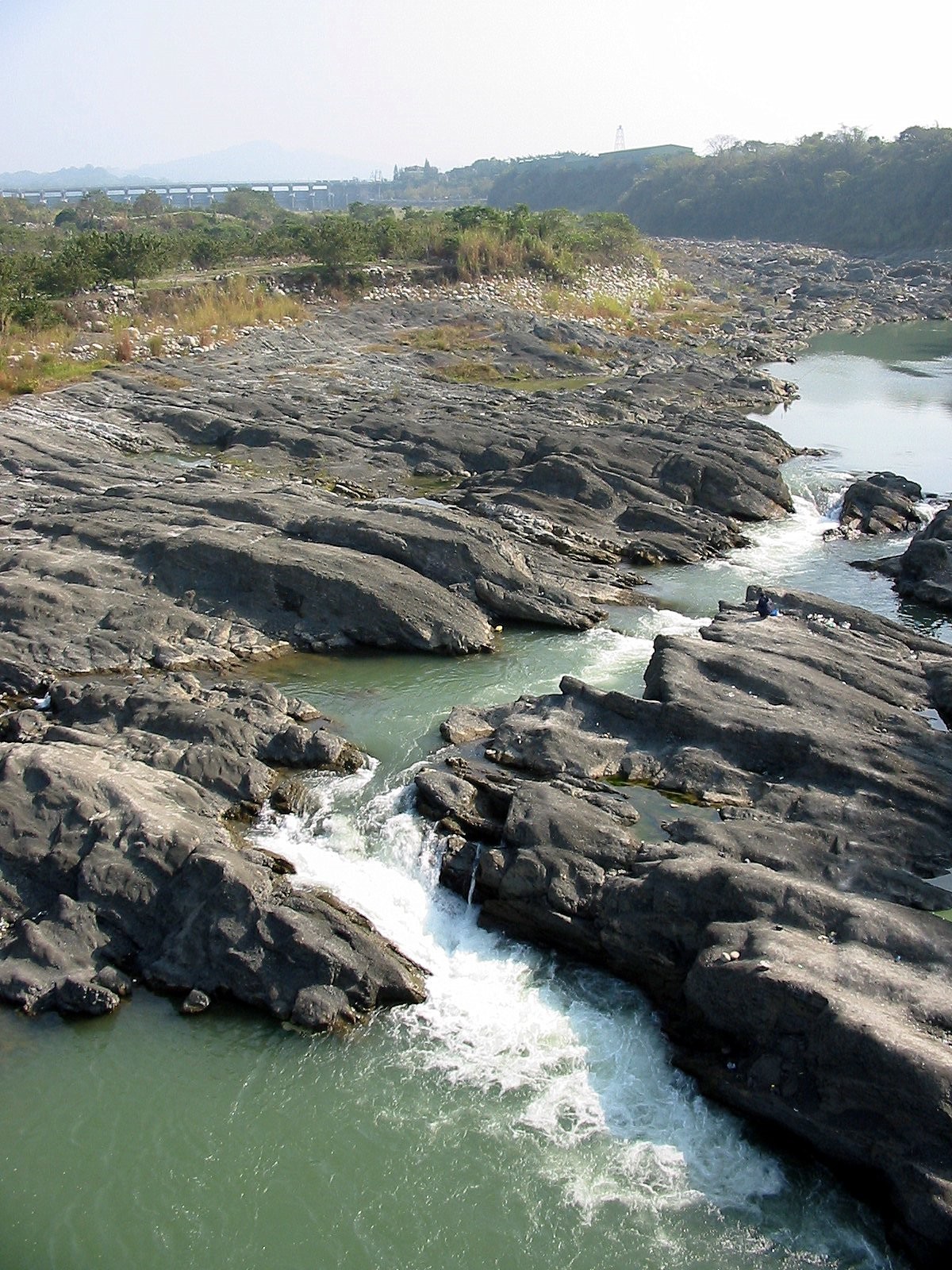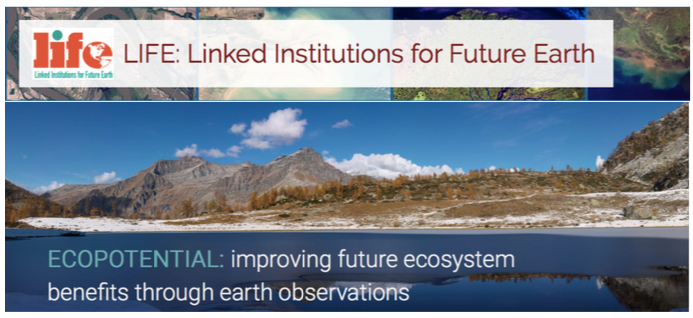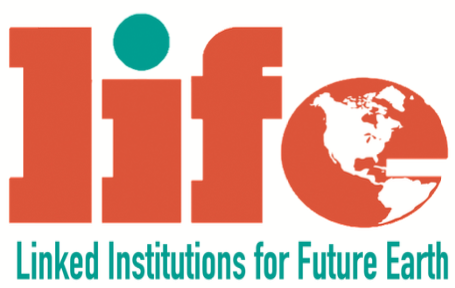
LIFE, or Linked Institutions for Future Earth, aims to create an international network of researchers, institutions, and experimental sites/field observations dedicated to advancing the quantitative predictive understanding of the Earth surface system. LIFE is a Virtual Institute, sponsored by the National Science Foundation (NSF) Science Across Virtual Institutes (SAVI) program, working to catalyze global research activities efficiently and economically while mentoring and creating international research opportunities for junior researchers.
The objectives of LIFE include:
1. Creating a global network of leading institutions to understand and predict the evolution of the Earth-surface environmental under natural and human-induced change;
2. Cultivating a culture of action-oriented research; and
3. Creating a forum for sharing data, ideas, and expertise while mentoring young researchers within a global interdisciplinary environment.
Upcoming Activities:
(1) A new Summer Institute at UCI called R2R-CAL (Ridge to Reef - Climate and Life).
Renown speakers from around the world have been invited to lecture in the R2R-CAL Summer Institute and around 30 young researchers from around the world have been accepted to attend. This SI leverages the NSF-funded interdisciplinary national training program (NRT) Ridge2Reef (R2R) project at UCI for which LIFE PI Foufoula-Georgiou is a collaborator. The R2R-CAL theme will be on “Biodiversity in human-dominated landscapes” and will cover topics ranging from marine environments of urban coastlines, regional climate and hydrological projections, fragmentation and resilience of terrestrial ecosystems, and trends and patterns of human resource use and impacts on the environment. Students will not only get hands-on experience that will include spatial analysis techniques or remote sensing data including ArcGIS, machine learning algorithms, and statistical downscaling techniques, they will also improve their professional development skills through science communication, policy and management as well as engaging in social activities that will enhance networking skills and foster long-term professional relationships.
(2) SIESD 2018: Earth-surface math: evolution, signals, and connections. Summer Institute on Earth-surface Dynamics (SIESD) 2018 to be held on July 25th-August 4th, 2018 at the St. Anthony Falls Laboratory, University of Minnesota.
This year’s Summer Institute focuses on the mathematical tools involved in earthcasting, with a particular focus on landscape connections and how signals (e.g. effects of climate change) are propagated through Earth-surface systems and recorded, whether in deposits or the current landscape. A desire to learn is essential, but training in advanced mathematics is not. The topics to be explored will include both erosional and depositional landscapes. Lectures and exercises on mathematical techniques will be complemented by experiments and observations at the St. Anthony Falls Laboratory.
(3) 12th International Precipitation Conference (IPC) to be hosted in UC irvine June 2019.
The International Precipitation Conference (IPC) is an international conference that started in 1986 in Caracas, Venezuela. It was supported in the past by NSF but this support has not materialized in the past decade as the conference has moved to international hosting (Netherlands, Paris etc.). This international forum (attended by more than 200 scientists) comes back to be hosted in the US in 2019 and LIFE is undertaking this effort.
Past Events:

FIRST “LIFE-ECOPOTENTIAL” MEETING ON ECOSYSTEM MANAGEMENT OF PROTECTED AREAS
University of California, Irvine
November 15-17, 2016
-- Funded by NSF and EU --
The scope of this meeting is to bring together two projects of global reach funded by NSF (LIFE) and EU (ECOPOTENTIAL) to coordinate scientific, programmatic, observational, and educational activities towards an accelerated understanding of earth surface processes and ecosystems as complex social, hydrological, and geo-biological systems undergoing change under climate and human stressors. It aims to establish a long-term institutional partnership for scientific and educational exchange.
LIFE (Linked Institutions for Future Earth) is an international network of institutions, researchers, and experimental/field sites dedicated to advancing the quantitative understanding of earth surface processes and environment change. LIFE is sponsored by the Science Across Virtual Institutes (SAVI) initiative of NSF, aiming to catalyze global research activities efficiently and economically while mentoring and creating international research opportunities for junior researchers.
ECOPOTENTIAL is a European-funded H2020 project that focuses on developing a unified framework for ecosystem studies and management of internationally recognized Protected Areas, blending Earth Observations from remote sensing and field measurements, data analysis and modeling of current and future ecosystem conditions and services. ECOPOTENTIAL considers cross-scale geosphere-biosphere interactions at regional to continental scales, addressing long-term and large-scale environmental and ecological challenges.
Meeting Organizers:
Efi Foufoula-Georgiou, Travis Huxman, Matthew Bracken, and Kailen Mooney (Univ. of California, Irvine), Antonello Provenzale (National Research Council of Italy, Pisa) SS.
LIFE - Sponsored Videos:
1. The Human Era: A World of Changes
featuring Patrick Hamilton (Science Museum of Minnesota) and Chris Paola (University of Minnesota)
2. Eating Water: Agriculture and Climate Change
featuring Kate Brauman (University of Minnesota)
3. Acidifying Oceans: Oceans and Climate Change
featuring Kevin Theissen (University of St. Thomas)
4. Hot Air: Atmosphere and Climate Change
featuring Tracy Twine (University of Minnesota)
Learn more about the LIFE approach, our core network, and our seven interconnected programs.
Submit comments or corrections to Efi Foufoula-Georgiou at efi@uci.edu.
